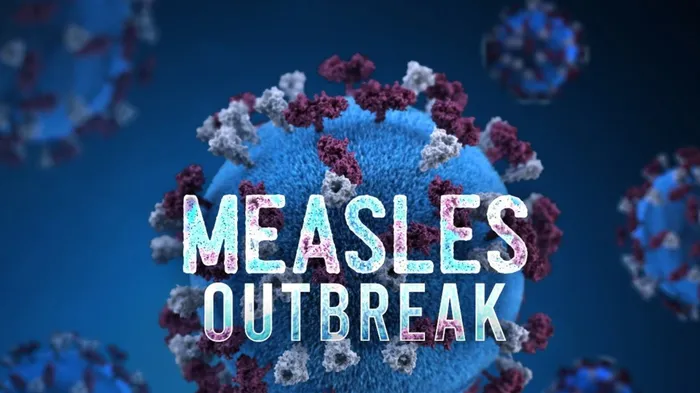Gauteng's measles outbreak prompts urgent call for vaccination

In Gauteng a total of 181 laboratory-confirmed measles cases have been reported from 1 January to 13 June 2025.
Image: Supplied
The provincial Department of Health has intensified its public health efforts in response to a surge in measles cases across Gauteng. A public health expert from the University of the Western Cape (UWC) has also urged a further scale-up of measles vaccinations to help curb the ongoing outbreak.
Prof Talitha Crowley, the Academic Division Head at the School of Nursing, said that vaccination coverage in the province, reportedly under 75%, is well below the threshold to prevent outbreaks.
"To prevent any measles outbreak, we actually need less than 5% who are not vaccinated in a community. In other words, 95% vaccination coverage."
In Gauteng, a total of 181 laboratory-confirmed measles cases have been reported from 1 January to 13 June 2025, with many of these cases emanating from Johannesburg, Tshwane and Ekurhuleni districts.
She continued, “In Gauteng, districts with high numbers of zero-dose children - those who have received no immunisations - may experience a surge in cases.”

UWC Associate Professor Talitha Crowley
Image: UWC
According to a vaccine hesitancy webinar conducted by the Department of Health in 2024, in some areas up to 22% of children were unvaccinated Prof Crowley noted.
“Encouragingly, the Cape Metropole increased its under-5 immunisation coverage to 90% by early 2025, thanks to targeted campaigns. Children are routinely vaccinated against measles at six and 12 months as part of South Africa’s Expanded Programme on Immunisation. Catch-up doses are available for those who missed their vaccinations, with no upper age limit.”
Despite being vaccine-preventable, measles continues to pose a serious health threat, particularly to young children and vulnerable communities. She warned that measles is not just a childhood illness - it’s a highly contagious viral disease that can lead to severe complications and even death. It spreads through respiratory droplets when an infected person coughs or sneezes. The virus can linger in the air or on surfaces for up to two hours, making it alarmingly easy to contract. Symptoms typically appear seven to 14 days after exposure, beginning with fever, cough, runny nose, and red, watery eyes. A few days later, a distinctive red rash emerges, starting on the face and spreading across the body.
“By the time the rash appears, the person is already in the most contagious phase. Complications from measles can be devastating. The virus damages the lining of the skin, gut, lungs, eyes, and sometimes the liver and brain, while also weakening the immune system,” explained Prof Crowley.
“This can lead to diarrhoea, pneumonia, blindness, encephalitis, and even death. Children under two, those who are malnourished, and immunosuppressed individuals are especially at risk.”
As for prevention, vaccination remains the most effective defence, said Crowley, “One dose of the measles vaccine offers about 93% protection, and two doses increase this to around 97%.
While rare, vaccinated individuals can still contract measles, but symptoms are usually mild and less likely to spread.”
In cases where someone is exposed to measles, individuals should confirm their immunity status - the body's ability to resist disease either naturally or through vaccination. Post-exposure vaccination within three days can help prevent infection.
Prof Crowley advised: “If symptoms appear, seek medical attention immediately and inform your healthcare provider. Measles is a notifiable condition in South Africa. With vigilant immunisation efforts and public awareness, measles can be controlled and lives can be saved.”
Related Topics: